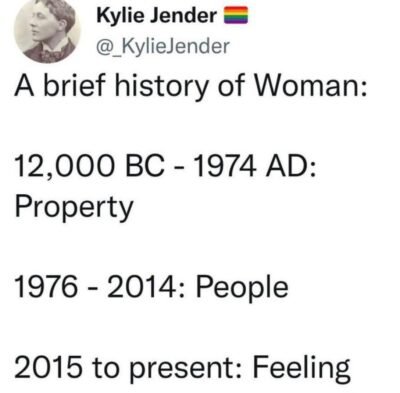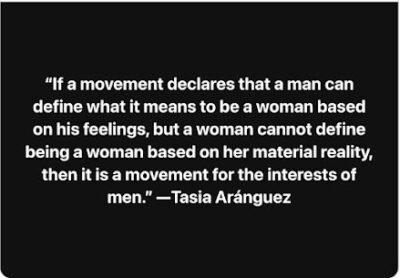Women who demand male free spaces are not hateful but have you explored the possibility that you may be? Are you carrying on the ancient global wi

Women who demand male free spaces are not hateful but have you explored the possibility that you may be? Are you carrying on the ancient global wide tradition of oppressing and silencing women? At the very least being insensitive and refusing to hear the concerns of women?
There is nothing new or “progressive” about ignoring the needs, dignity, privacy, and concerns of women. You simply have some things in common with ancient Grecian enslavers, war time soldiers, and modern day terrorists.
Mock, belittle, and ignore her. As if she doesn’t matter. Just rusted chains of the old code.
Here’s a structured history and timeline of how different societies, institutions, and belief systems have denied women and girls their privacy, dignity, and safety. This isn’t exhaustive—because the denial is nearly universal and spans millennia—but it highlights pivotal examples that show the continuity of this pattern.
Ancient Civilizations
Mesopotamia (c. 2100 BCE – 539 BCE)
The Code of Ur-Nammu and Code of Hammurabi treated women largely as property. Rape was defined as a property crime against a man (the father or husband), not a violation against the woman herself. Privacy and consent were disregarded.
Ancient Greece (c. 800 BCE – 146 BCE)
Women were excluded from public life, kept under male guardianship, and denied bodily autonomy. Enslaved women and girls were openly used for sexual exploitation. Even “respectable” women were expected to remain invisible and voiceless in civic life.
Ancient Rome (c. 753 BCE – 476 CE)
Patria potestas gave men absolute authority over wives and daughters. Fathers could arrange marriages for girls as young as 12. Sexual assault of enslaved women was not recognized as a crime; their safety was not considered.

Religious and Cultural Codifications
Medieval Europe (5th – 15th centuries)
Canon law often punished women for being raped, branding them as sinful if they were not “modest” enough. Wives were denied legal rights to refuse sex—establishing the marital rape exemption that lasted for centuries.
South Asia (Manusmriti, c. 200 BCE – 200 CE)
Codified laws placed women under perpetual male guardianship (father, husband, son). Privacy was curtailed through practices like veiling and restrictions on movement. Girls could be married as children without their consent.
Islamic & Christian Empires (7th – 17th centuries)
While both faiths had strands that affirmed women’s dignity, dominant interpretations often reinforced male control. Women’s testimony was discounted in courts, dress and mobility were strictly controlled, and domestic violence was often excused.
Colonial and Enslavement Systems
Transatlantic Slave Trade (15th – 19th centuries)
Enslaved African women and girls were denied all privacy and bodily autonomy. They were routinely raped, forced into reproduction, and stripped of dignity through public auctions. Their safety was seen as irrelevant to the economic system.
Colonial America & Early U.S. Law (1600s – 1800s)
Married women (under coverture) had no separate legal identity from their husbands. They could not own property, refuse sex, or seek protection from abuse. Indigenous women were assaulted during settler expansion, with little legal recourse.
Industrial & Modern Eras
Victorian Era (19th century Britain & colonies)
Women were idealized as “pure” but denied real protection. Working-class and colonized women were exploited in factories, brothels, and domestic servitude. Privacy rights did not extend to them.
U.S. Legal System (19th – mid-20th centuries)
Marital rape exemptions, lack of workplace protections, and sterilization abuse of women of color (e.g., Black, Indigenous, Puerto Rican women) reflected systemic disregard for women’s safety and dignity.
Nazi Germany & Imperial Japan (1930s–1940s)
Women were forced into “breeding programs” and “comfort stations” (sexual slavery of Korean, Chinese, Filipino girls under Japanese imperialism). Privacy and consent were obliterated under state policy.

Late 20th Century to Today
1970s–1990s:
The marital rape exemption was not fully overturned in the U.S. until the 1990s.
Black feminists (e.g., Beth Richie, Audre Lorde, etc…) exposed how women of color were doubly denied dignity—by racism and sexism.
Rape in war (Bosnia, Rwanda) was used as a weapon, shattering safety and privacy of women on a mass scale.
2000s–Present:
Global practices such as child marriage, FGM, acid attacks, and denial of access to safe abortion or restrooms perpetuate the idea that girls’ and women’s dignity is negotiable.
Movements like #MeToo, #SayHerName, and women-led uprisings in Iran, Sudan, and elsewhere are direct responses to this timeline of dispossession.
✅ Key Throughline: Across time, across continents, women and girls have been treated as property, objects, or vessels—denied basic rights to their own bodies, voices, and spaces. The struggle for privacy, dignity, and safety is not new—it is an ancient and ongoing battle.
No, many of us women do not look favorably upon women who think that they reached the top of whatever mountain they chose to climb only -to look down their noses at other women and demand that we all look at our shackles like pretty shiny bracelets.
climb only -to look down their noses at other women and demand that we all look at our shackles like pretty shiny bracelets.
Who mock women’s safety concerns. Who mimic our calls for respect. Who belittle our gatekeeping of opportunities women fought for.
When most of us have never known true safety. The kind that doesn’t require a man, a beast, mace, pepper spray, or a deadly weapon. Ask the average male if he carries pepper spray and watch him laugh at the absurdity.
What day on this planet were most women safe from male violence?
But, I still believe. I know that everyone is imperfect and flawed, present company raising her hand to be included. As long as we have breath we can grow. If you truly want to do something new and innovative, keep listening to a cross-section of everyday women. And honor our basic human rights.